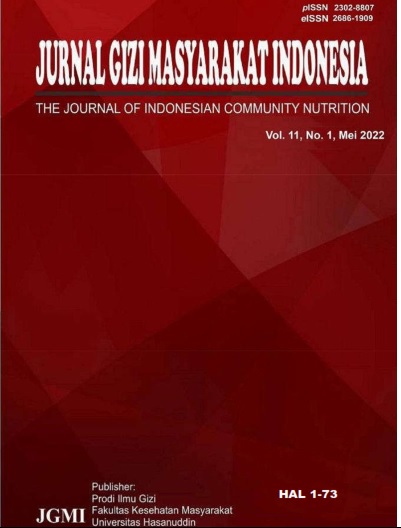DESCRIPTION OF FUNCTIONAL FOOD CONSUMPTION IN PRACONSEPTIONAL WOMEN IN TAKALAR
DOI:
https://doi.org/10.30597/jgmi.v11i1.20998Abstract
Introduction : The daily diet of preconception women can affect their nutritional status and health status. Objective: To assess the description of functional food consumption intake in preconceptional women in North Polongbangkeng District, Takalar Regency. Methods: This type of research is a descriptive study where consumption patterns are measured using the FFQ (food frequency questions) questionnaire. Functional foods are divided into seven groups, namely staple foods, animal side dishes, vegetable side dishes, vegetables, fruits, drinks and spices. Sampling used purposive sampling technique. The number of samples was 67 preconception women from North Polongbangkeng District, Takalar Regency. Results: The subjects were 67 people with the highest age being 18-25 years (62.7%), the highest length of education having graduated from high school (53.7%) with the majority of the subjects being Muslim (100%) and ethnic Makassar (98.5%) and most of the work in IRT (64.1%). Based on each functional food group the most frequently consumed were corn (14.6), fish (42.0), tempe (15.9), kale (18.2), mango (29.5), honey (8,2), shallots (44.9). Conclusion: All types of functional food that are often consumed are the types of food that are easiest to obtain around the home environment, are generally available in the market at affordable prices and have good nutritional content and bioactive compounds to maintain health and are abundant in the area. Suggestion: Increase the consumption of vegetables and fruits more and eat nutritious foods.
Downloads
Published
How to Cite
Issue
Section
License

This work is licensed under a Creative Commons Attribution-NonCommercial-ShareAlike 4.0 International License.




